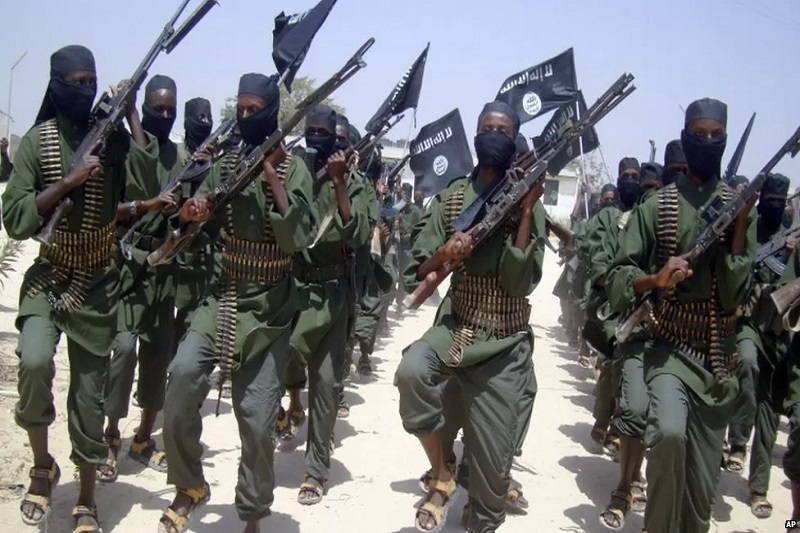One of the worst attacks on the nation in recent months occurred on May 26 at an African Union (AU) base in Somalia, according to the extreme Islamist Shebab. Uganda made the announcement that 54 Ugandan soldiers had been killed in the attack. Atmis’ base in Bulo Marer, which is 120 kilometers south-west of the capital city of Mogadishu, came under attack at dawn. Ugandan soldiers are in charge of it. Gun battles ensued after the attack, which included the use of a vehicle bomb and suicide bombers.
The al-Qaeda-affiliated Shebab, who have been fighting a brutal insurgency in the country for almost fifteen years, have claimed responsibility for the attack, stating that they “occupied” the base and were responsible for a large number of casualties. Neither Atmis nor Mogadishu provided an accurate count of the number of fatalities, which was eventually provided by President Yoweri Museveni of Uganda on Saturday evening.
Mr. Museveni made the announcement in a statement that was uploaded on his official Twitter account. “We found the lifeless bodies of 54 soldiers, including a commander,” the statement read. Since the Somali government, which receives support from Amis, launched an offensive against the Shebab in September of last year, this was one of the deadliest strikes to occur in Somalia.
Related Posts
Mr. Museveni expressed his condolences to the families of the fallen troops two days after the attack, tacitly admitting that there had been losses and adding that “all the facts” would be “made public.” Mr. Museveni explained the severe toll by blaming it on the faulty actions of two officers, who were scared by the attack by “800 terrorists” and ordered their soldiers to retreat. As a result, the soldiers lost their lives.
According to Mr. Museveni, these officers “did not react as expected and panicked, which caused them to become disorganized, and the Shebab took advantage of this to invade the base and destroy some of the equipment.” He said that the two men will be court-martialed for their acts because of the Shebab’s ability to take advantage of their actions. In spite of this, “our soldiers showed remarkable resilience and reorganized themselves,” which led to their success in retaking the base, as he explained it.
A commander of the Somali army told AFP that there had been “violent fighting” prior to the Shebab retreating in the face of Atmis’ reinforcements. These reinforcements included helicopter gunships. Both the United States and the European Union expressed their disapproval of the attack. In order to realize their goal of instituting Islamic law throughout this country located in the Horn of Africa, the Shebab are engaged in armed conflict with the Somali government and its international supporters.
In order to combat them, the African Union sent in 2007 a force known as Amisom, which included troops and police officers from Uganda, Burundi, Djibouti, Ethiopia, and Kenya. Amisom was given permission to operate by the United Nations Security Council. Atmis succeeded Amisom in April 2022, and the new organization adopted a more aggressive mandate with the goal of handing over complete control of the nation’s security to Somali forces by the end of 2024.
The Shebab were successful in driving them out of the main towns in 2011 and 2012, but they have maintained a strong presence in the vast rural areas. They launched a significant attack on an Atmis base north of Mogadishu in May 2022. Neither the Somali authorities nor the AU have provided any data at this time; however, sources within the Burundian military have told AFP that 45 soldiers have been killed or are missing.
As soon as he regained power in May 2022, Somali President Hassan Sheikh Mohamoud declared “all-out war” on the Shebab and launched a military operation with the assistance of airstrikes from both the United States and Atmis. In September, Somalia’s president dispatched troops to the country’s central region in order to support local clan militias that had rebelled against the central government.
Since then, the army and these militias, collectively referred to as the “macawisley,” have successfully retaken significant swaths of areas previously held by the Shebab, with the assistance of Atmis and US air strikes. In spite of these losses, the Shebab have continued to carry out lethal attacks, including ones in the centers of towns and ones on military sites. It was the bloodiest incident in the country in the previous five years when, on October 29, 2022, two car bombs exploded in Mogadishu, causing the deaths of 121 people and injuries to 333 others.
Antonio Guterres, the Secretary-General of the United Nations, stated in a report that was presented to the United Nations Security Council in February that 2022 was the worst year for civilians in Somalia since 2017, mostly owing to strikes carried out by the Shebab. At the same time, the nation, along with its neighbors, is experiencing a catastrophic drought that is the worst it has been in at least forty years.
According to United Nations estimates, 8.3 million people in Somalia are currently suffering from the drought, which means that roughly half of the country’s population will need humanitarian aid this year.

